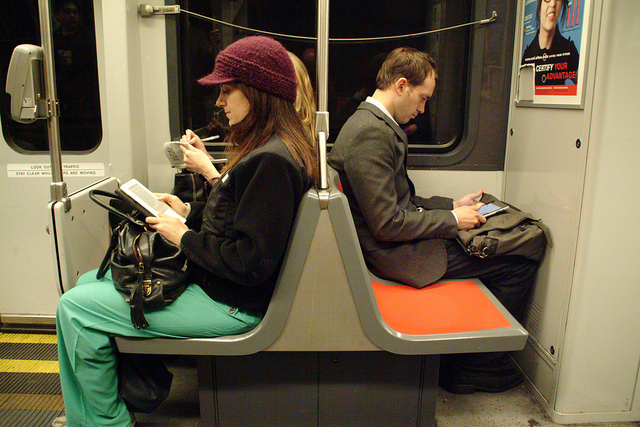- 56Shares
- Twitter16
- LinkedIn14
- E-mail10
- Buffer
- WhatsApp16
Media barons – media owners who use their newsrooms to exercise political pressure and power – have become more influential in many Central and Eastern European countries. The most recent mega deals in the U.S. and in Germany indicate that the barons are returning to the West too.
Current media markets are turbulent. Journalism is expensive and it is becoming harder to turn a profit. Successful business models are yet to be built. If media companies no longer generate profits, anyone who owns one must have a different motivation for their investment. In such instable circumstances, little wonder that media barons are reappearing.
What is a media baron? Canadian media researcher David Taras has defined him as a “powerful media owner who sees himself or herself as […] part business person, part journalist, and part politician. The influence of media barons comes not from their imposing commercial pressure on news reporting but from the extent to which they enter […] the fray directly as journalistic impresarios and political partisans. They have bought newspapers and own TV stations precisely because they are ardent political combatants.”
The phenomenon of media barons has to be looked at alongside the issue of media ownership concentration. When profits at companies controlled by families or individual owners begin to fall, owners may well be tempted to sell. More powerful or wealthier owners of rival media groups can turn the situation to their advantage, both politically and economically.
The reappearance of media barons has also been observed recently in the United States. Long before Jeff Bezos bought the Washington Post and the billionaire John Henry the Boston Globe, the New York Times’ media expert David Carr cited several examples of media barons. He argues that the phenomenon is closely related to the crisis in the U.S. newspaper industry, which has halved in size in the last seven years.
“If most newspapers are an uneconomical proposition incapable of sustaining profits,…who is left to own them?” he asks. “Rich guys,” is his answer, and he adds more precisely, “Not merely the well off, but the kind of men who long ago separated themselves from humdrum economic realities of life. Sure, there are other expensive hobbies, but how many antique cars or 19th century landscapes can you own?” Carr foresees that some of these new owners will potentially use their “collectibles” for political goals or purposes serving their other business interests.
The situation in Europe is much more complicated, because media barons’ origins and appearances are more heterogeneous than in the U.S. In some countries like Italy, France, or the U.K., “old” media barons have been part of the media landscape for decades. Tycoons like Rupert Murdoch have used their media outlets to back one political party or another, others like Silvio Berlusconi have abused their media to install themselves in powerful political positions. Before they died, Jesús de Polanco in Spain, Hans Dichand in Austria and decades earlier Axel Springer and Rudolf Augstein in Germany or Alfred Harmsworth (Lord Northcliffe), and Robert Maxwell in the U.K. were archetypal media barons – finding ways to exert power discreetly, and occasionally flexing their muscles openly.
In comparison, the media barons in Eastern Europe are newcomers. But they have become so numerous and powerful there that the phenomenon is now associated with the post-communist countries. Media barons became influential political actors in the early 1990s, some of them immediately after the decay of the Soviet Empire.
Post-Communist Russia birthed several media barons, many of whom later lost their power because they clashed with Vladimir Putin’s regime. Media barons have also become powerful in Balkan countries like Serbia and Albania, or in Romania and Bulgaria where they could establish themselves in media markets at the beginning of the countries’ democratic transformation. Other local tycoons entered the scene after Western investors like Mecom in Poland, the WAZ Group in Serbia, moved out.
In Europe, media barons can be clustered in three groups: “hidden”, “high profile,” and “potential” media barons. The major examples of “hidden media barons” come from the Western Balkans. In many cases the real owners of media outlets cannot be identified as they are hiding themselves behind companies founded outside the country. A recent report by the Serbian Anti-Corruption Council points out that out of 30 of the country’s most significant media outlets there were 18 outlets whose actual owners were unknown. To list one example: Zeljko Mitrovic owns TV Pink and a 4.95% share of TV Avala. “Additionally,” explains Serbian media researcher Veselin Kljajic (University of Belgrade), “the Austrian company Greenberg Invest is perceived to be closely related to Mitrovic, with its ownership of 48 % of TV Avala. Shares. This fuels public speculation that the station is actually in majority ownership of Mitrovic.”
In Albania, media ownership is slightly more transparent, but there is still a public belief that “legal owners are not the real owners”, says Artan Fuga, professor of communications at the University of Tirana. “The overall number of newspapers and television channels is very large in proportion to the population, and the advertising market is still rather small. This makes it hard to run a viable media business.” Owners use the media and its power mainly “to exert pressure and to gain favors,” says Remzi Lani, director of the Albanian Media Institute.
Compared to the Western Balkans, countries like Romania – as well as the Czech Republic and Ukraine – have “high profile media barons” who are powerful and visible. Media ownership is highly concentrated, but transparent.
Romania might be called the “Italy of the East”. A significant number of persons and families listed among the richest Romanians own important media outlets, even if the media business is not the core of their business activities. Among its media barons Dinu Patriciu and Dan Voiculescu need to be mentioned. Patriciu is the only Romanian billionaire to appear on the Forbes rich list, a former member of parliament for the Liberal Democratic Party, and owns Adevarul-Holding, a conglomerate which owns print media as well as Adevarul TV.
Voiculescu, ranked second in a list of the most influential media people in Romania and a founding member of the Conservative Party of Romania. Though his daughters Corina and Camelia now control the Intact Media Group and its five TV channels, four newspapers, as well as magazines and other media assets, “its newsrooms remain closely connected to Voiculescu’s political ambitions”, states Alina Vasiliu, professor of journalism at Andrei Saguna University of Constanta.
In the Czech Republic, Jaromir Soukup, owner of Empresa Media and the media agency Médea, refers to himself as a Czech “Berlusconi.” He supported the Green Party, the Social Democrats, and most recently the former Prime Minister Jan Fischer for his presidential run in 2013. Another businessman who mixes politics, business, and media is 58-year-old Andrej Babiš, who earned millions through his agrochemical company Agrofert. His current expansion into the media business involves the 2012 launch of a wide regional net of free weekly newspapers called 5+2.
In Ukraine the process of economic liberalization went hand in hand with growing corruption and the emergence of financial-industrial groups called “clans” closely connected with the political establishment. Media outlets became attractive assets for these groups. In effect, the richest Ukrainian oligarchs, like Rinat Akhmetov and Victor Pinchuk, are also the biggest media owners.
Despite popular belief, not all media barons are Eastern oligarchs: several “high profile” media barons have always been operating successfully in Western Europe. In Italy Silvio Berlusconi has for decades been the most powerful of all of them. However, his main competitor Carlo De Benedetti and several other Italian family-owned business empires have always held newspapers – not for the profit’s sake, but for their returns in political influence. In Italy this phenomenon is called the “editoria impura” (the impure publishing business).
In France, Martin Bouygues, owner of the fifth biggest construction company in Europe, holds a 44 percent share in TF1, the biggest French TV station. Bouygues was the best man of former French president Nicolas Sarkozy and his first wife Cécilia, as well as the godfather of their son Louis. Serge Dassault, supplier of fighter jets for the French army and a senator for the right wing party UMP (Union pour un mouvement populaire), is considered to be the new tycoon dominating the French media market. Dassault owns the Figaro Group which publishes the biggest national daily Le Figaro (300,000 copies circ.) and the leading French television weekly TV Magazine (6 million copies circ.)
In the U.K. the most visible mogul is Rupert Murdoch, owning The Times (daily circulation 400,000) and The Sun (2.6 million copies daily), and a 40 percent share of BskyB, owner of Sky News, through News UK (formerly News International). His use of the media to influence politics and political figures has been asserted – but has been difficult in the past to prove. Recently the Leveson Inquiry, investigating the phone hacking scandal of the News of the World, provided more evidence of his links to the government.
In Western Europe and in Poland there are many “potential” media barons: rich media owners who certainly might become media barons, but so far they have not exhibited such political ambitions. For example, Germany and Switzerland are countries with few active media barons. However, media ownership is becoming more concentrated and the mainstream media is less profitable than it was: changing conditions that create a breeding grounds for media barons and a potential threat to democracy.
The two largest publishing companies in Germany, Bertelsmann and Springer – with total revenues in 2012 reaching €16.6 billion (Bertelsmann AG) and €3.3 billion (Springer AG) – are now both controlled by heiresses: Liz Mohn and Friede Springer are two of the world’s most influential female media entrepreneurs: Both women are difficult to imagine as “media baronesses,” they are private people who do not seek out the limelight.
Nevertheless, both media companies are important participants in the political power play. In the case of Bertelsmann, the foundation which is closely intertwined with the company is not only a think tank, but has become a political powerhouse of its own. The most powerful political figure within the Springer Group are possibly not the owners or the CEO, but the editor of Bild-Zeitung, Kai Diekmann; a man who can change the fortunes of a politicians’ career in Germany.
In Switzerland, populist politician Christoph Blocher has recently invested in the Basler Zeitung, turning him into a media baron in a move that has been greeted with some consternation. However, the power balance in the country would only be seriously affected if one of the family members of the two largest private media companies, Ringier and Tamedia, ever showed signs of having political ambitions.
In Poland we are dealing as well with “potential” media barons after the Western investors Orkla Media and Mecom withdrew from the market. The new regional media owners are currently wary of being too politically involved, and tend to balance out their support among different political groups. The bigger media owners Zygmunt Solorz-Żak and the Walter and Wejchert families, who own two private nationwide TV stations, Polsat and TVN, seek political balance and the creation of a good environment for their business, rather than visibility and influence and the political process.
While Western European investors have been moving out of Eastern Europe, at least one Russian oligarch “invaded” successfully the West: Alexander Lebedev became a significant player in the U.K. newspaper market and another potential media baron after purchasing the London Evening Standard (an evening paper that once had a cover price but is now a free sheet with more than 0.5 million circulation) and The Independent (circ. about 70,000 daily) and Sunday Independent (circ. about 100,000). He and his son Evgeny Lebedevs have since launched a new newspaper “i” aimed at the middle market (circ. about 300,000).
Media barons come in Europe in many shapes and sizes. The way they operate, the objectives they hope to achieve, vary from country to country. Political culture, market size, wealth, all play a part in the way they operate, as does the flow of foreign capital, particularly in eastern European countries.
It is not easy to identify clear patterns in their behavior. But it is fair to conclude that media barons have gained power in a significant number of European countries. An increasing concentration of media ownership and decreasing profitability in the traditional media have all played a part in the emergence of the new wave of media investors with political interests.
It cannot be assessed accurately yet whether this applies also to Jeff Bezos and Warren Buffett, who has recently integrated several newspapers in the U.S. into his empire.
The Swiss and the German examples and the American developments provide a scenario of what might happen next: If the profitability of newspapers continues to decrease as rapidly as in the U.S., more of them will become insolvent like the Frankfurter Rundschau or be closed down like the Financial Times Deutschland, and other once prestigious “old” outlets like the Basler Zeitung may easily become prey to “new” populist barons like Blocher. These new tycoons may not exercise uncontrollable political influence like Silvio Berlusconi in Italy, but in a highly concentrated media market a dangerous liaison of populist media owners and populist politicians can endanger the checks and balances of democracy. We have seen this tasking place in Eastern Europe. It could happen in Western Europe as well.
This article was created with contributions from Tina Bettels, Hana Biriczova, Philip Di Salvo, Natascha Fioretti, Cristina Gelan, Jonila Godole, Milica Jevtić, Olena Kutovenko, Marko Nedeljkovic, Dariya Orlova, Meera Selva and Rrapo Zguri.
A shorter version of this article was published in the Neue Zürcher Zeitung.
Photo credit: Chris Devers / Flickr CC
- 56Shares
- Twitter16
- LinkedIn14
- E-mail10
- Buffer
- WhatsApp16
Tags: Albanian media, Czech Media, Czech Republic, David Taras, European Media, French Media, German Media, Jeff Bezos, Journalism, Media barons, media markets, media owners, Media Ownership, media ownership concentration, Newspapers, Polish Media, Political influence, post-communist Eastern Europe, post-communist media, Post-Communist Transition, Romanian Media, Rupert Murdoch, Swiss Media, U.K. Media, U.S. Media, Ukrainian Media, Washington Post













































